Beyond the glow of the boat lights, it was pure black. Bats swooped in and out, catching their evening meal, and heavy splashes punctuated the night - crocodiles catching theirs. I laid on the back of the boat, staring up at the hazy Milky Way. Every minute or so, a white streak flashed across the sky. Insects as loud as heavy machinery kept me company. When the chatter inside died down, I slipped down into the cabin and under our mosquito net, falling asleep with the gentle rocking of the boat.
Not many people come to Kalimantan, the Indonesian side of the island of Borneo, but those who do usually visit Tanjung Puting National Park
. It's famous as the study site of Birute Galdikas, the lesser known of the three primatologists trained by Louis Leakey in the 1970's (the other two being Jane Goodall and Diane Fossey). For many years, her camp served as a rehabilitation center for confiscated orangutans. The idea was to teach them to live in the wild again and integrate them with wild populations. The concept has come under a lot of fire, and in fact Indonesian law now forbids the release of rehabilitated orangutans into forests with wild populations. But the legacy of the rehabilitation period is a population of mostly tame orangutans that live in the forest, but return to the rehab camps at designated feeding times. Because of this, the park offers a guaranteed opportunity to see orangutans up-close in their forested environment.
For me, seeing the orangutans was secondary. It's not a zoo, but I can't get too excited about seeing tame animals getting called in for dinner. The orangutans are really cool and I enjoyed seeing them, but the contrived nature of it makes it less magical
. But the park offered something else that was magical: houseboats. To see the park, you rent a small boat, called a "klotok," that comes with its own captain, cook and guide. Then you spend three days chugging upriver, stopping off at the feeding stations along the way. At night you tie off on the bank and sleep under the stars. Although it's primitive, it's perfectly comfortable, and if you enjoy spending time on a river it's a must.
I loved the boat, but I have to add the caveat that I was mad most of the time. We ended up on a boat with four 20-year-old Danish students who did not share my love of silence in the rainforest. I have no idea how they managed to come up with things to talk about for three days straight, but that they did. Loudly. The only saving grace was that it was in Danish, so I couldn't get irritated about specific content. But whatever it was, it surely wasn't as cool as the sound of monkeys calling to each other at dusk. Which I sort of vaguely heard over all the Danish
. My anger was compounded when I discovered that we could have gotten our own boat for what we paid. Grrrrr.
Moving on...On the first day, we motored up a river that looked like chocolate milk, apparently from mining pollution. We soon turned up a tributary that was what they call "black water" - clear water stained red and black by the tannins in the falling leaves. Every day we stopped by a feeding station at the designated time and followed a path to the platform. We knew right away that these were no wild orangutans. On our first stop, an orangutan met us at the dock and walked ahead of us, looking over his should every few minutes to make sure we were following. I guess they know the feeding doesn't start until the tourists arrive. The feeding platform was covered with bananas, and orangs swung in and out picking up bunches. At two of the stations, the domanant male showed up and sat on the platform gorging himself. The others, though, were much more wary. They would grab as many bananas as they could, stuffing them in their mouths until they were falling out, then run up a tree and sit in a crook munching away
. The dominant male is surprisingly bigger than everyone else, and quite intimidating. For me, the most fun to watch were the babies. They're so cute, with their frizzy hair and wide eyes. They move as if they're drunk, clumsily practicing their tree swings or grabbing at passing bananas while clutching their moms.
We saw a lot of other wildlife (including a few wild orangutans), and Shen discovered his new favorite animal: the gibbon. The gibbon is a very lean, muscley monkey with a branch-swinging style that makes him look like Spiderman. Something about how he carries himself is very humanlike. But like a really cool human. The kind of human who wouldn't sit next to us in the lunch room because he'd be too busy sharing a smoke with the teacher.
We didn't see crocodiles, but we heard a crazy story from Camp Leakey. The Camp, which is Dr. Galdikas' camp, used to have a posted swimming hole nearby. We went to look at it, and it looks very inviting
. It's a big pool where the river constricts, creating a natural dam. Swimming was prohibited here, however, when a British volunteer was eaten by a crocodile.
Every evening, we'd be back on the boat by late afternoon, and we'd cruise up the river in the golden light. At that time of day, the proboscis monkeys gather in the trees along the water's edge. They were everywhere - it was a proboscis monkey gauntlet.
We also had good luck with our guide, Mewadi. He was very ecoconscious and much more sensitive to the orangs than the other guides. He was also very interested in learning more about the US, and he peppered us with questions nonstop. We're accustomed to the usual - where are you from, how long are you here, etc etc. His questions were hysterical. "In your country, do you have a lot of cheese?" "Are there haunted areas?" "Do you have coyboys?" Sometimes they took on a dualistic nature: "Bread in your country: Cheap, or expensive?" And my personal favorite, "Mermaids: Real, or imagined?" He did not feel the need to segue - he once sat down at the table with us and, with no further greeting, started the conversation with, "In your country do you have triplets?" Good morning to you too, Mewadi. I liked him from the start, but he really won me over when talking about the orangutans. He said that guides feeding them makes them dependent and less likely to adapt to the wild, so "when I see it, it makes me angry in my heart."
The boat trip was a good introduction to Kalimantan, but we're also excited to see wild orangutans. Another national park is next on the list!
River Cruising
Wednesday, July 27, 2011
 Pangkalan Bun, Kalimantan Tengah, Indonesia
Pangkalan Bun, Kalimantan Tengah, Indonesia
Other Entries
-
3Kami belajar Bahasa Indonesia!
Jun 0354 days prior Seminyak, Indonesiaphoto_camera18videocam 0comment 3
Seminyak, Indonesiaphoto_camera18videocam 0comment 3 -
4New Friends
Jun 0651 days prior Seminyak and Lovina, Indonesiaphoto_camera9videocam 0comment 4
Seminyak and Lovina, Indonesiaphoto_camera9videocam 0comment 4 -
5Good time to go
Jun 1047 days prior Seminyak, Indonesiaphoto_camera11videocam 0comment 0
Seminyak, Indonesiaphoto_camera11videocam 0comment 0 -
6Ubud
Jun 1542 days prior Ubud, Indonesiaphoto_camera41videocam 0comment 0
Ubud, Indonesiaphoto_camera41videocam 0comment 0 -
7Bali-Bye
Jun 1740 days prior Denpasar, Indonesiaphoto_camera11videocam 0comment 8
Denpasar, Indonesiaphoto_camera11videocam 0comment 8 -
8The Wild East
Jun 1938 days prior Waingapu and Pulupanjang, Indonesiaphoto_camera10videocam 0comment 2
Waingapu and Pulupanjang, Indonesiaphoto_camera10videocam 0comment 2 -
9Surf Camp
Jun 2334 days prior Kallala, Indonesiaphoto_camera17videocam 0comment 6
Kallala, Indonesiaphoto_camera17videocam 0comment 6 -
10Skipping through the village
Jun 2631 days prior Waikabubak, Indonesiaphoto_camera24videocam 0comment 0
Waikabubak, Indonesiaphoto_camera24videocam 0comment 0 -
11Interminable Ferries and Magical Lakes
Jun 3027 days prior Moni, Indonesiaphoto_camera34videocam 0comment 0
Moni, Indonesiaphoto_camera34videocam 0comment 0 -
12Housewarming, Flores-Style
Jul 0225 days prior Bajawa, Indonesiaphoto_camera48videocam 0comment 1
Bajawa, Indonesiaphoto_camera48videocam 0comment 1 -
13Komodo Part I: Land
Jul 0720 days prior Labuanbajo, Indonesiaphoto_camera26videocam 0comment 2
Labuanbajo, Indonesiaphoto_camera26videocam 0comment 2 -
14Komodo Part II: Sea
Jul 0720 days prior Labuanbajo, Indonesiaphoto_camera11videocam 0comment 0
Labuanbajo, Indonesiaphoto_camera11videocam 0comment 0 -
15Not in Kansas
Jul 1116 days prior Jakarta, Indonesiaphoto_camera9videocam 0comment 2
Jakarta, Indonesiaphoto_camera9videocam 0comment 2 -
16Surf Extravaganza - Shen's Guest Post!
Jul 189 days prior Batu Karas, Indonesiaphoto_camera27videocam 0comment 7
Batu Karas, Indonesiaphoto_camera27videocam 0comment 7 -
17The Joys of Travel
Jul 198 days prior Yogyakarta, Indonesiaphoto_camera1videocam 0comment 3
Yogyakarta, Indonesiaphoto_camera1videocam 0comment 3 -
18Path to Enlightenment (or at least better grammar)
Jul 225 days prior Borobudur, Indonesiaphoto_camera39videocam 0comment 5
Borobudur, Indonesiaphoto_camera39videocam 0comment 5 -
19Visa Run
Jul 234 days prior Singapore, Singaporephoto_camera7videocam 0comment 1
Singapore, Singaporephoto_camera7videocam 0comment 1 -
20River Cruising
Jul 27 Pangkalan Bun, Indonesiaphoto_camera49videocam 0comment 3
Pangkalan Bun, Indonesiaphoto_camera49videocam 0comment 3 -
21Into the Wild
Aug 037 days later Kutai National Park, Indonesiaphoto_camera32videocam 0comment 5
Kutai National Park, Indonesiaphoto_camera32videocam 0comment 5 -
22Surf Safari - SHEN GUEST POST #2!!!
Aug 1014 days later Kuta, Indonesiaphoto_camera34videocam 0comment 2
Kuta, Indonesiaphoto_camera34videocam 0comment 2 -
23Honeymooning At Last
Aug 1418 days later Gili Meno, Indonesiaphoto_camera14videocam 0comment 3
Gili Meno, Indonesiaphoto_camera14videocam 0comment 3 -
24Happy Postscript
Aug 1620 days later Washington DC, United Statesphoto_camera4videocam 0comment 4
Washington DC, United Statesphoto_camera4videocam 0comment 4
Comments
2025-05-22
Comment code: Ask author if the code is blank

 Pangkalan Bun, Kalimantan Tengah, Indonesia
Pangkalan Bun, Kalimantan Tengah, Indonesia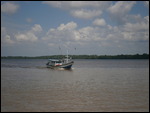
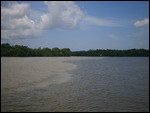
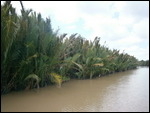
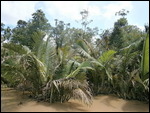
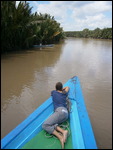



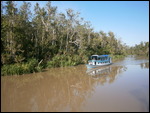
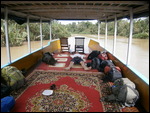
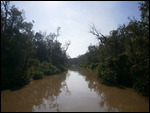
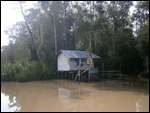
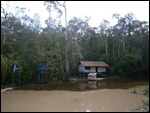
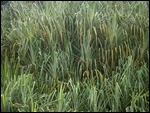
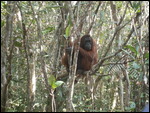
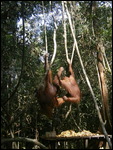
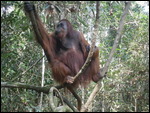
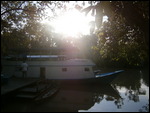
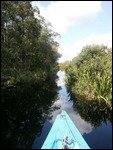
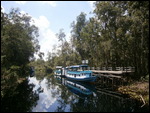
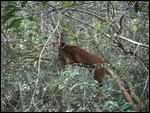
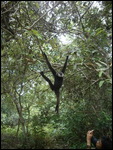
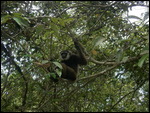
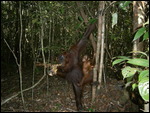
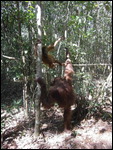
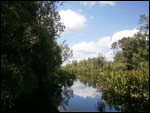
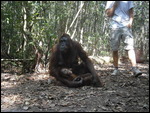
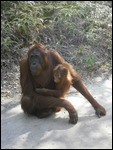
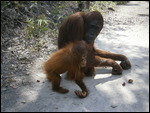
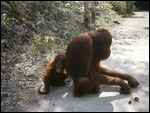
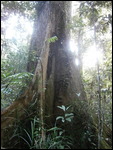
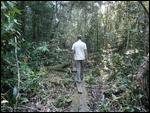
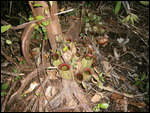
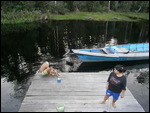
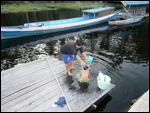
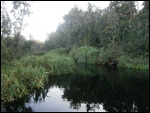
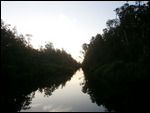
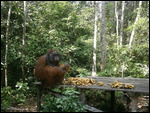
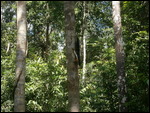
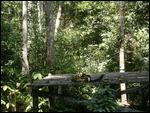
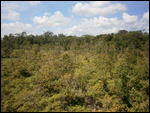
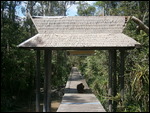
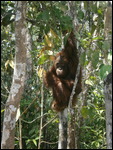
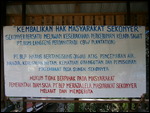
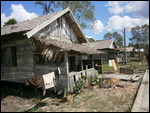
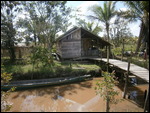
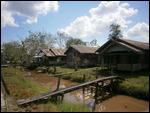
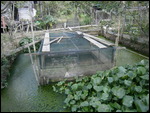
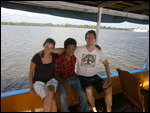
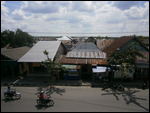
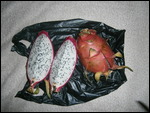
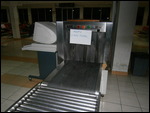
Anne-Marie
2011-08-02
Your guide Mewadi sounds great. I love the river boat idea -- you are making me add so many more places/adventures to my must-see list! Enjoy the rest of your trip, Jess and Shen!
Amy Scott
2011-08-02
I love your guide's questions! Hilarious.
Nicole
2011-08-02
I remember being more entertained by all the people trying to get the "best shot" of the orangs...and I was there at the end of tourist season so I can only imagine what it's like when there a lot of other groups. Jealous that you guys are getting to go into another park...I wish I had had the time to hire a guide and walk through the park.